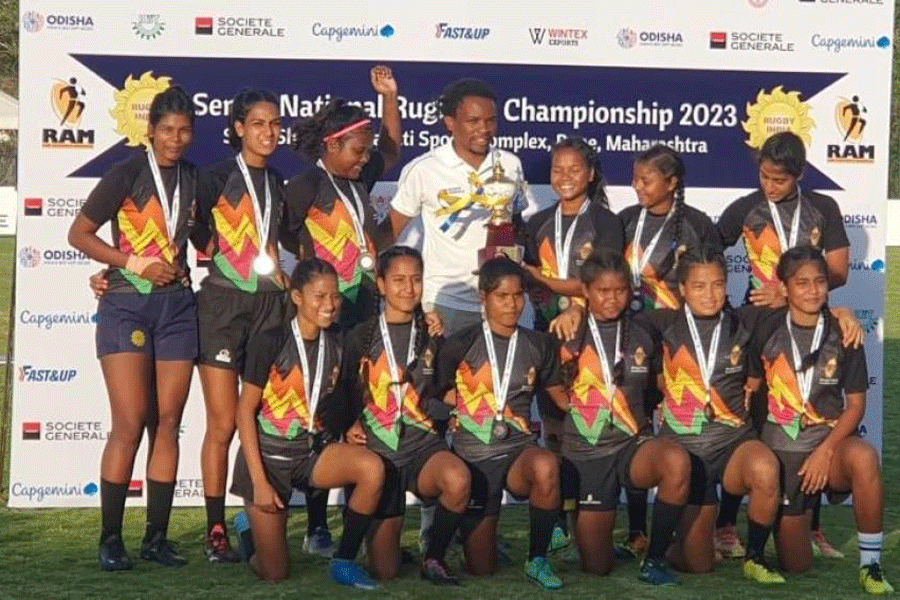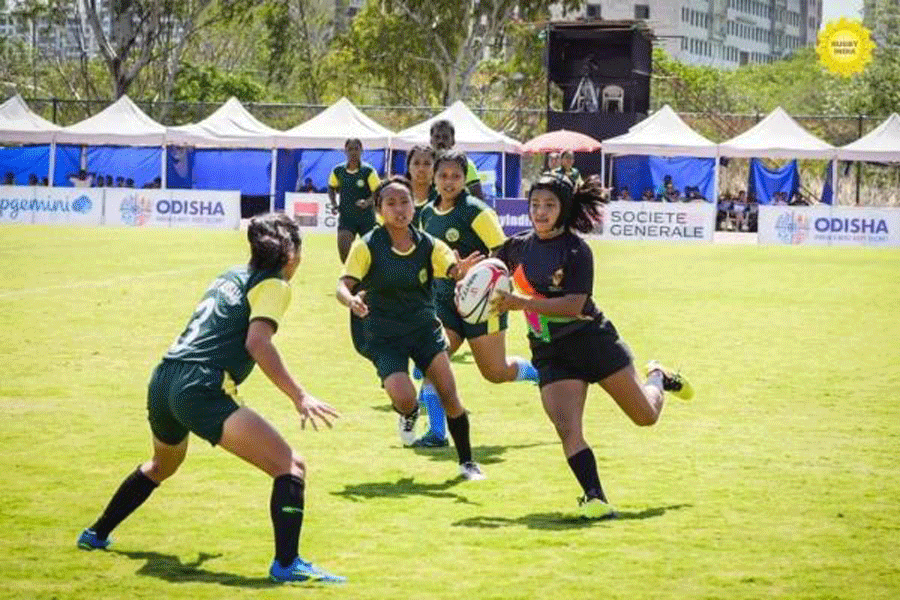A bunch of feisty women has just won bronze for Bengal in a national rugby tournament.
In the Senior National Rugby 7s Championship in Pune, the Bengal women beat Kerala 35-5 to claim the third position on Saturday.
In an earlier match on the same day, the Bengal team were beaten 26-5 by Odisha — the eventual champions — in the semi-final.
For most of the players from Bengal, rugby is more than just a sport. It is a vehicle that brought them to the mainstream from the margins.
One of the key players is Sandhya Rai, 22, who hails from a tea garden in Saraswatipur, in the Baikunthapur forest beside the Teesta River in Jalpaiguri.
Rai’s parents work in the tea garden. Around eight years ago, she was spotted during a talent scout that aimed to popularise the sport in the districts.
Now, she is one of the star backs of the Bengal and the Indian rugby teams.
In rugby, the attacking players are called backs. The backs are often smaller, faster and more agile. The defenders, called forwards, are usually the larger and stronger players whose main job is to win possession of the ball.
Rai came to Kolkata to train with Future Hope, a school for marginalised children that focuses on rugby to change lives. Over the years, she has represented India in Dubai, France and Indonesia.
“The result was not up to the mark. We tried hard but lost to a better team,” Rai told The Telegraph over the phone from a train to Howrah with her teammates. The team reached Howrah station on Tuesday.

The Bengal team with Rasta Rasivhenge, a former South African rugby star who is now a referee. The Telegraph
Rima Oraon, 21, the captain of the Bengal team and one of the backs, also hails from the same tea garden.
“We will learn from our mistakes and come back stronger next time,” said Oraon.
Paul Walsh, a former British diplomat who founded Jungle Crows, the rugby campaign that has been instrumental in spotting talents like Rai and Oraon, said he was “extremely proud” of the Bengal team.
“Rugby has broken boundaries for these girls. It is a tough game and I have seen how tough women from Bengal are. What we need is to ensure that the girls get enough support to continue playing this fantastic sport,” said Walsh, a long-time mentor for the Bengal players.
Sadhika Khatoon, 19, is a forward. “She is not very big in size but very, very strong,” said Walsh. Khatoon lives with her parents in a slum in Howrah. She was spotted a few years ago during the Khelo Rugby campaign, a drive to take rugby to the grassroots.
“Initially, it was very difficult to get her parents onboard. They were apprehensive about letting their girl travel out of the state. But now, they are very happy that they did,” said Walsh.
Multiple people who are part of the rugby ecosystem in Bengal said while the players from Bengal were promising, the sport lacked government support. They pointed to neighbouring Odisha. “If a player from Odisha represents the Indian rugby team, a government job is guaranteed. There is a lot of institutionalised support. There are incentives for youngsters to play rugby,” said one of them, who requested anonymity.
“Rugby helps these girls in conquering fear. Their mental strength grows significantly,” said Sujata Sen, treasurer of the Bengal Rugby Union.
“We look forward to institutionalised support for these players,” she said.
